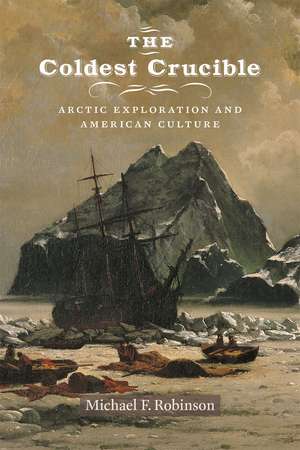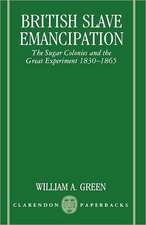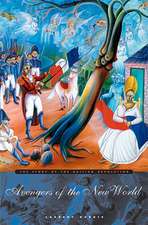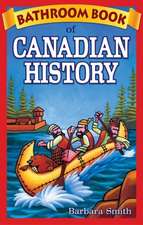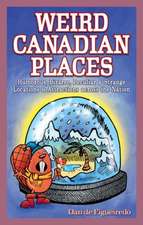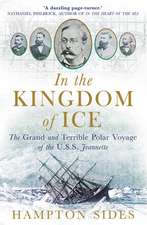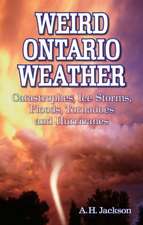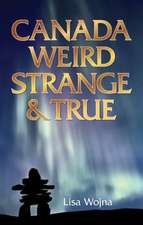The Coldest Crucible: Arctic Exploration and American Culture
Autor Michael F. Robinsonen Limba Engleză Paperback – 10 noi 2014
In the late 1800s, “Arctic Fever” swept across the nation as dozens of American expeditions sailed north to the Arctic to find a sea route to Asia and, ultimately, to stand at the North Pole. Few of these missions were successful, and many men lost their lives en route. Yet failure did little to dampen the enthusiasm of new explorers or the crowds at home that cheered them on. Arctic exploration, Michael F. Robinson argues, was an activity that unfolded in America as much as it did in the wintry hinterland. Paying particular attention to the perils facing explorers at home, The Coldest Crucible examines their struggles to build support for the expeditions before departure, defend their claims upon their return, and cast themselves as men worthy of the nation’s full attention. In so doing, this book paints a new portrait of polar voyagers, one that removes them from the icy backdrop of the Arctic and sets them within the tempests of American cultural life.
With chronological chapters featuring emblematic Arctic explorers—including Elisha Kent Kane, Charles Hall, and Robert Peary—The Coldest Crucible reveals why the North Pole, a region so geographically removed from Americans, became an iconic destination for discovery.
With chronological chapters featuring emblematic Arctic explorers—including Elisha Kent Kane, Charles Hall, and Robert Peary—The Coldest Crucible reveals why the North Pole, a region so geographically removed from Americans, became an iconic destination for discovery.
Preț: 215.97 lei
Nou
Puncte Express: 324
Preț estimativ în valută:
41.33€ • 42.99$ • 34.12£
41.33€ • 42.99$ • 34.12£
Carte tipărită la comandă
Livrare economică 14-28 aprilie
Preluare comenzi: 021 569.72.76
Specificații
ISBN-13: 9780226214153
ISBN-10: 022621415X
Pagini: 200
Ilustrații: 14 halftones, 4 line drawings
Dimensiuni: 152 x 229 x 18 mm
Greutate: 0.3 kg
Editura: University of Chicago Press
Colecția University of Chicago Press
ISBN-10: 022621415X
Pagini: 200
Ilustrații: 14 halftones, 4 line drawings
Dimensiuni: 152 x 229 x 18 mm
Greutate: 0.3 kg
Editura: University of Chicago Press
Colecția University of Chicago Press
Notă biografică
Michael F. Robinson is associate professor of history at the University of Hartford.
Cuprins
List of Illustrations ix
Acknowledgements xi
Introduction 1
Chapter One 15
Building and Arcitc Traditon
Chapter Two 31
A Man of Science and Humanity
Elisha Kent Kane
Chapter Three 55
An Arctic Divided
Isaac Hayes and Charles Hall
Chapter Four 83
Dying Like Men
Adolphus Greely
Chapter Five 107
The New Machines
Walter Wellman and Robert Peary
Chapter Six 133
Savage Campaigns
Robert Peary and Frederick Cook
Conclusion 159
Notes 165
Bibliography 181
Index 199
Acknowledgements xi
Introduction 1
Chapter One 15
Building and Arcitc Traditon
Chapter Two 31
A Man of Science and Humanity
Elisha Kent Kane
Chapter Three 55
An Arctic Divided
Isaac Hayes and Charles Hall
Chapter Four 83
Dying Like Men
Adolphus Greely
Chapter Five 107
The New Machines
Walter Wellman and Robert Peary
Chapter Six 133
Savage Campaigns
Robert Peary and Frederick Cook
Conclusion 159
Notes 165
Bibliography 181
Index 199
Recenzii
“A wonderful book to read and ponder. Michael Robinson takes us on an exhilarating voyage into the American encounter with the Arctic from Elisha Kane to Robert Peary and Frederick Cook. The characters are alive, the scenes are vivid, and the stories are riveting. But this is not another book on the Arctic explorer. Robinson has delivered a long-overdue argument, one that is both nuanced and elegant. The lived experience of the explorer began and ended not on the ice floes of the north but in the committee rooms, newspaper offices, lecture halls, sideshows, circuses, and private dining clubs throughout the country. Robinson shows brilliantly that the Arctic explorer reflected the changing culture of the country. Progressively cut off from science, the explorer found himself in the pockets of the great press barons in whose hands scandal and failure made better copy than did geographic success. Like so much of America, the explorer had become a brand, a disturbing sign of the future.”
“Others have investigated how the crucible of Arctic exploration shaped individual explorers, but Michael Robinson imaginatively turns the frame toward an American public that persisted in supporting adventurers from Elisha Kane to Robert Peary. Originally justified as scientific ventures, the expeditions created a palpable ‘Arctic fever’ in American public culture which refracted messages of manliness, the power and limits of technology, and national ambition. In a narrative analysis alert to symbols as well as realities, The Coldest Crucible is ultimately about testing the mettle of the Americans themselves.”
“In this sharply written and lively study, Michael Robinson explains the rise and fall of Arctic explorers as American icons. Robinson humanizes these men by placing them in a much larger web of scientific authority, masculine identity, patronage, and the fickle taste of the general public. What emerges is a much more nuanced view of ‘Arctic fever,’ complete with heroic tales but also human failures.”
"Michael F. Robinson is concerned with the perception of Arctic exploration in the United States, rather than with the exploration itself....Robinson has a real thesis, and he presents it with admirable clarity and a firm understanding of its shadings and nuances."
"Robinson casts a fresh light upon some of the most important blanks on our map of the role of popular sentiment, nationalism, and the rising mass media, in the evolution and valuation of Arctic exploration. He demonstrates a keen eye for significant detail, and a deep engagement with his primary sources, which promise strong work to come. It is to be hoped that he will soon make a second and more extended expedition."
"Robinson's account is full and interpretive. It is both exciting and revealing. It tells us a great deal about the pure scientists (such as those who today fly off on space adventures) and those who stay on Earth but fly high by exploiting the discoveries of their betters."
"This monograph is clear, detailed, meticulously researched, and elegantly written. . . . [Robinson] offers a new and convincing interpretation of the cultural significance of Americans' devotion to Arctic exploration in this period. . . ."
"This book makes an obvious contribution to the historiography of nineteenth and twentieth-century America, as well as to polar studies per se. It also joins a growing body of work that studies the way a nation's polar expeditions are organized and celebrated in order to gain a better understanding about the country itself. . . . Anyone interested in modern U.S. history or the history of polar exploration will read this book with profit and enjoyment. It deserves—and will hopefully reach—a wider audience as well."
"The author's emphasis is always behind the scenes, back in America. The questions he raises are much more culturally resounding than what is often encountered in the narrowly circumscribed work of those who 'do' arctic history. . . . This is a very welcome book."
"A fascinating look at an aspect of exploration history that has largely been overlooked by others. Few northern historians have asked what larger issues of American culture might have been at work to change popular interest in northern exploration from an avid scientific curiosity about the people and landscape into a desire simply to go further faster than anyone else."
“For too long, American Arctic history has seemed separated from the narrative of national identity—a list of epic tragedies or an endless controversy surrounding Frederick Cook’s and Robert Peary’s enduring dual claims for the North Pole. Robinson has done an admirable job of placing that history within a cultural framework. . . . The ideal book for those who want to understand why Arctic exploration mattered to generations of Americans . . . and how that story revealed far more about the United States than it did about the Arctic.”
"Robinson shows that the history of polar exploration is more than a story about geographical discovery and scientific data-gathering. It is also an exciting story about enterprising entrepreneurs who had to adapt to the ideals and discussions of their time."
Winner of the 2008 Book Prize by the Forum for the History of Science in America
